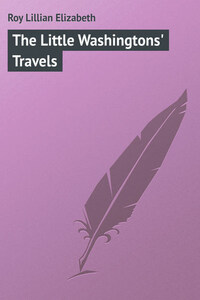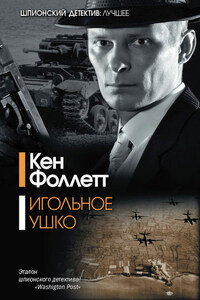CHAPTER I
NEW YORK THE GREAT MECCA
"My parlor chair swings around every way!" exclaimed Martha Parke, thoroughly enjoying the novelty of whirling on a Pullman parlor chair.
"They all do, but folks are supposed to sit quiet and only swing when they want to see who's sitting on the other side of the car, or perhaps if a friend sits next to them and talks – then you have to turn and answer, of course," explained George Parke.
Jack Davis, the Philadelphia cousin of the two Parke children, had the vast experience of travelling from his native city to the country home of the Parkes just outside of Washington, D. C., a few weeks prior to the opening of this story. So, of course, he knew all about the Pullman parlor chairs.
"That isn't why they whirl at all! It's so you can turn to look out of the opposite windows, 'cause both sides of a railroad track have scenery, you know," glancing at the elders of the party to make sure they had overheard him.
"Why, Jack Davis! That isn't the reason at all! It's for the convenience of the conductor to take up tickets, so he won't have to lean away over or knock off the passenger's hat. Then, too, when the buffet waiter serves luncheon on those folding tables, he has to have room to move the chair around and place the stand right over the passenger's lap. Don't you remember?" explained Anne Davis to her brother.
"I'll ask mother – shall I?" ventured John Graham, a member of the travelling party from the South.
"No, no! We don't want to know anything! Let's see who can find the first church along the line," quickly said George, to divert attention.
For some time thereafter the young travellers were quiet, until Jack shouted: "I see one! It's old and tumble-down, but it has a steeple just the same!"
While the children were playing this game, the elders sat planning about the New York trip. They had started from the country estate that morning without mishap, which was remarkable, considering the many ways the "Little Washingtons" had of getting into trouble. But now that all were en route for the great city of the north, they wondered whether it had been wise to bring five lively children on such a trip.
"If John doesn't behave when you take him to visit the historical places, just let me know, and I will keep him at his great-aunt's. She hasn't a thing he can do mischief to!" said Mrs. Graham.
Mr. Parke laughed. "That would be a severe punishment for John. But I feel quite sure he will be the least troublesome of the party. George generally takes the lead in all escapades, you know."
"Not when Jack is around to suggest mischief!" added Mrs. Davis from Philadelphia.
"Well, there will be two of us, anyway, to keep them in order. And little Jim won't be here for them to use as a scapegoat, you know," laughed Mrs. Parke, thinking of the happy little face of the pickaninny who was last seen on the steps holding a book and a box of candy presented him by the Davis children.
"Did Sam wire you he would meet us?" asked Mrs. Davis of Mr. Parke.
"Yes, when I telegraphed him from home, he replied to my office in Washington. He will arrive in New York a train before us, and meet us at the Pennsylvania Terminal at Thirty-third Street. Then we will go to some large hotel until we see what we wish to do for the week."
"George sat looking over the newspaper this morning while we were waiting at the station in Washington for this train, and I leaned over to see what was engrossing his attention. What do you think he was reading?" asked Mrs. Parke.
"Goodness only knows what George reads – anything from the last drive of the Italians on the Alps to the present quotations on Wall Street!" laughed Mr. Parke, the father.
"Neither! He was poring over the list of hotels and restaurants in New York City. Finding I was watching, he said: 'I just found the place for us to stop.'
"'Yes?' said I. 'Where is it?'
"'The Martha Washington Hotel. We wouldn't think of boarding anywhere else, would we, when we are related to Martha?'"
The others laughed at this, and Mrs. Graham added: "Did you explain that that hotel was a ladies' hotel, and neither he nor his father nor his uncle would be allowed to stay there?"
"No, because he forgot all about the hotel when he saw Jack and the girls leading John over to the candy booth. That was enough for George!" laughed Mrs. Parke.
"I suppose you ladies have planned a campaign for going about to show the 'patriots' the historical points of interest in the city – that is why you came up here, you know," teased Mr. Parke.
"You came for business purposes, you said, so we will not trouble you with our plans," retorted Mrs. Davis.
But further conversation was interrupted by the children. "Mother, didn't you bring the copy of our Washington history with you?"
"I have it in the trunk. – Why?" said Mrs. Parke.
"Because Jack says Washington was in Boston in the spring of 1776, and I say he was in New York, where he thought General Howe was going after being driven from Boston," explained George.
"You are both right, son. Washington remained in Boston for a time to see just what Howe would do, and then fearing the weakness of defence of and about New York, he started for that city. It was while he was at New York that the letter from Congress was given him, in which he was so highly commended for the bravery and conduct of himself and his men at the siege," said Mrs. Parke.














